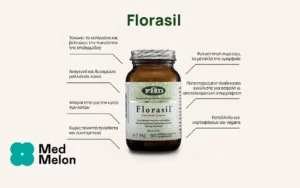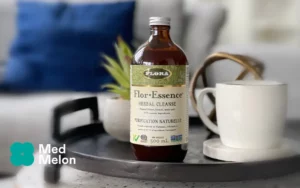Scientific Names of Rooibos Tea: Aspalathus linearis (Burm. f.) R. Dahlgr. (syn. Borbonia pinifolia Marloth or Aspalathus contaminata (Thunb.) Druce. [Fam. Leguminosae]
Forms:
Tea made from the shoots and/or the leaves of Aspalathus linearis
Traditional Usage:
– Allergies
– Anemia (alternative to black tea)
– Antioxidant
– Antimutagenic
– Burns
– Cleansing, Detoxifying
– Colic, Stomach Upset
– Constipation
– Digestive Disorders
– Eczema
– Headaches and Migraine
– Heart Health Maintenance
– HIV Infectio
– Immune System
– Liver Health Maintenance
– Nutritive
– Radiation Poisoning
– Respiratory Health Maintenance
– Skin Disorders
– Sleep Disorders
– Sugar Regulation
– Sunburn
– Wounds
Overview:
Rooibos, Aspalathus linearis L. [Fam. Leguminosae], also known as red bush, is a shrub-like bush indigenous to South Africa that is popularly used for making hot or cold tea beverages. There are over 200 species of Aspalathus, but only Rooibos is popularly used and sold in commerce. Based upon many studies and its traditional use in Africa, the tea provides many health benefits and does not appear to have any negative effects on the body even when consumed in large quantities as a replacement for drinking water. Rooibos is completely caffeine-free and, unlike black tea, does not reduce iron absorption. Additionally, Rooibos possesses many nutrients including iron, potassium, copper, calcium, manganese, fluoride, zinc, magnesium and sodium. Rooibos is considered particularly beneficial for helping to maintain healthy skin, hair, teeth, and bones. The Japanese use Rooibos as an ingredient in bread, cosmetics, and sweets, as well as a favorite beverage. Scientists in Japan have found Rooibos to act as an anti-oxidant, helping to slow the process of aging and benefiting the immune system. While Rooibos is primarily enjoyed as a pleasant warm or cold beverage, it is also a medicinal plant that has traditionally been used to treat melancholy, insomnia, irritability, vascular disorders, allergies, respiratory conditions, blood sugar control diseases, liver problems, cataracts, headache, indigestion, nausea, colic, stomach cramps, vomiting, heartburn, and constipation. Externally, it helps with a variety of skin problems including stings, sunburns, eczema, and rashes. Although many of these claims have little scientific basis, studies have reported strong anti-oxidant activity for the tea. Rooibos is popularly used for treating aging-related complaints as well as conditions that affect the immune system. Recent studies have reported rooibos tea as having antimutagenic and anti-HIV activity. The antimutagenic and antioxidant properties of Rooibos are far greater for unfermented shoot and leaf teas.
Active Ingredients:
The processed leaves and stems of Aspalathus linearis contain: many flavonoids and polyphenols with powerful antioxidant activity including a new diastereomeric pair of the flavanones, (S)- and (R)-eriodictyol-6-C-beta-D-glucopyranoside, which is also formed via the oxidative cyclization of the dihydrochalcone, aspalathin, under conditions which mimic the fermentation process. The tea also contains many polysaccharides and oligosaccharides. The ascorbic acid content of rooibos tea varies between 121,8 and 154,9 micromoles/l, depending on the method of preparation. Rooibos tea also contains small amounts of iron, magnesium, phosphorus, sodium, chloride and potassium. These findings have practical nutritional and therapeutic implications. Unlike black tea, Rooibos does not contain any caffeine or tannin. [Marais C, van Rensburg WJ, Ferreira D, Steenkamp JA. (S)- and (R)-eriodictyol-6-C-beta-D-glucopyranoside, novel keys to the fermentation of rooibos (Aspalathus linearis). Phytochemistry. 2000 Sep; 55(1): 43-9; Nakano M, Nakashima H, Itoh Y. Anti-human immunodeficiency virus activity of oligosaccharides from rooibos tea (Aspalathus linearis) extracts in vitro. Leukemia. 1997 Apr; 11 Suppl 3: 128-30; Nakano M, Itoh Y, Mizuno T, Nakashima H. Polysaccharide from Aspalathus linearis with strong anti-HIV activity. Biosci Biotechnol Biochem. 1997 Feb; 61(2): 267-71].
Suggested Amount:
Rooibos tea is generally taken as a beverage tea, as desired throughout the day, and can be used as an alternative to black or green tea with even higher antioxidant activity and other excellent health benefits. Rooibos is enjoyed either warm or cold. Not only can it be kept warm for hours without losing its flavor, but it can also be stored cold in the refrigerator for frequent daily use. If Rooibos is brewed or boiled for longer than 10 minutes, the anti-oxidant activity is said to increase.
Drug Interactions:
None known.
Contraindications:
None known.
Side Effects:
None known. A controlled study recently showed that, in contrast to ordinary tea, Rooibos tea did not affect iron absorption significantly (P less than 0,0001). Mean iron absorption after ingestion of rooibos tea, ordinary tea, and water was 7,25%, 1,70% and 9,34% respectively.
References:
Inanami O, Asanuma T, Inukai N, Jin T, Shimokawa S, Kasai N, Nakano M, Sato F, Kuwabara M. The suppression of age-related accumulation of lipid peroxides in rat brain by administration of Rooibos tea (Aspalathus linearis). Neurosci Lett. 1995 Aug 18; 196(1-2): 85-8.
Lamosova D, Jurani M, Greksak M, Nakano M, Vanekova M. Effect of Rooibos tea (Aspalathus linearis) on chick skeletal muscle cell growth in culture. Comp Biochem Physiol C Pharmacol Toxicol Endocrinol. 1997 Jan; 116(1): 39-45.
Marnewick JL, Gelderblom WC, Joubert E. An investigation on the antimutagenic properties of South African herbal teas. Mutat Res. 2000 Nov 20; 471(1-2): 157-66.
Shimoi K, Masuda S, Shen B, Furugori M, Kinae N. Radioprotective effects of antioxidative plant flavonoids in mice. Mutat Res. 1996 Feb 19; 350(1): 153-61.
Standley L, Winterton P, Marnewick JL, Gelderblom WC, Joubert E, Britz TJ.
Influence of processing stages on antimutagenic and antioxidant potentials of rooibos tea. J Agric Food Chem. 2001 Jan; 49(1): 114-7.




